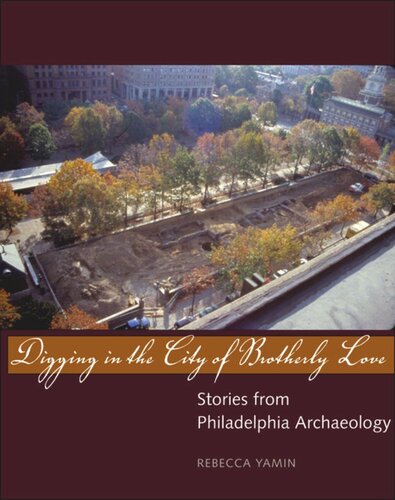

Most ebook files are in PDF format, so you can easily read them using various software such as Foxit Reader or directly on the Google Chrome browser.
Some ebook files are released by publishers in other formats such as .awz, .mobi, .epub, .fb2, etc. You may need to install specific software to read these formats on mobile/PC, such as Calibre.
Please read the tutorial at this link: https://ebookbell.com/faq
We offer FREE conversion to the popular formats you request; however, this may take some time. Therefore, right after payment, please email us, and we will try to provide the service as quickly as possible.
For some exceptional file formats or broken links (if any), please refrain from opening any disputes. Instead, email us first, and we will try to assist within a maximum of 6 hours.
EbookBell Team

4.1
90 reviewsBeneath the modern city of Philadelphia lie countless clues to its history and the lives of residents long forgotten. This intriguing book explores eighteenth- and nineteenth-century Philadelphia through the findings of archaeological excavations, sharing with readers the excitement of digging into the past and reconstructing the lives of earlier inhabitants of the city.
Urban archaeologist Rebecca Yamin describes the major excavations that have been undertaken since 1992 as part of the redevelopment of Independence Mall and surrounding areas, explaining how archaeologists gather and use raw data to learn more about the ordinary people whose lives were never recorded in history books. Focusing primarily on these unknown citizensan accountant in the first Treasury Department, a coachmaker whose clients were politicians doing business at the State House, an African American founder of St. Thomas’s African Episcopal Church, and othersYamin presents a colorful portrait of old Philadelphia. She also discusses political aspects of archaeology todaywho supports particular projects and why, and what has been lost to bulldozers and heedlessness. Digging in the City of Brotherly Love tells the exhilarating story of doing archaeology in the real world and using its findings to understand the past.